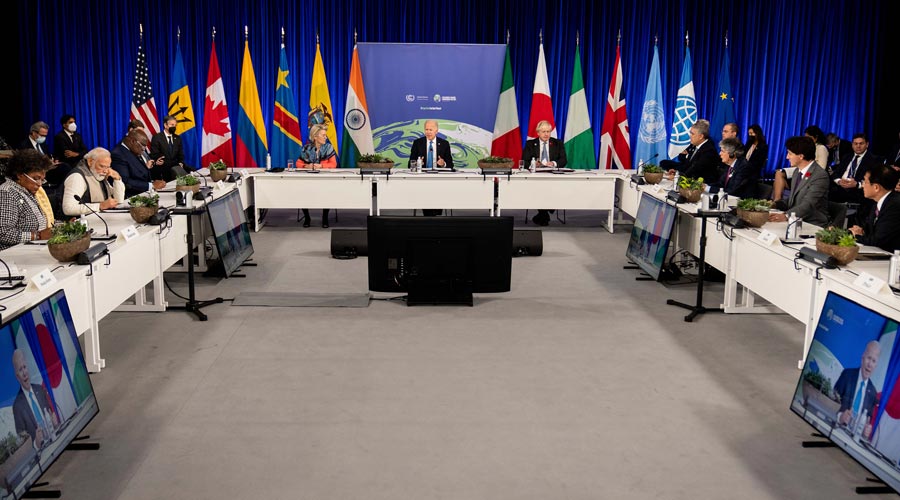If there is one thing that different governments ought to be able to agree on, it is the need to save the planet. Yet, after two weeks of heated debates, negotiators ended Friday — the official culmination of CoP26, the United Nations climate change conference — without a shared, global commitment. Talks continued on Saturday, but it appears that any agreement, if reached, will represent a watered-down effort with enough wiggle room so that it will be hard to truly hold most nations accountable. It all looked so different in the early days of the summit, when India announced a net-zero emissions target by 2070 and multiple nations struck mini deals with major implications. More than 100 world leaders agreed to end deforestation by 2030. The United States of America and the European Union announced a joint plan to cut methane emissions by 2030. In a surprise announcement, China and the US — otherwise bitter geopolitical rivals — agreed to work together to limit the global temperature increase to 1.5 degrees Celsius from pre-industrial levels.
But when it comes to forging a global consensus on some of the knottiest issues around climate change, world leaders and their teams appear ready to kick the can down the road. It is clear that major coal consumers like China, the US and India do not want to commit to a timeline for phasing out the use of fossil fuel. If that resistance has been partly responsible for holding up an outcome in Glasgow, CoP26’s host city, the reluctance of wealthy nations to deliver on their promises to help finance the transition of developing nations to green economies is equally to blame. Emerging economies, many of which are among the worst victims of climate change, are also seeking a global fund to help them adapt to extreme weather events. Once again, developed countries are hesitant to step up.
But adaptation is not just about physical infrastructure. There is now mounting evidence that global warming is leading to a mental health epidemic. Researchers are finding cases of ‘solastalgia’ — a term crafted by the Australian ecological philosopher, Glenn Albrecht, to describe distress caused by climate change — in populations across the world. Global warming is sparking a wave of depression, anxiety and other mental health conditions that threaten to further widen existing inequities in society: women and residents of poorer nations are likely to suffer more. Meanwhile, in the US, medical schools are starting to train students in identifying eco-anxiety. The silver lining? A generation of teenagers and pre-teens is increasingly driving global conversations on climate change: the Swedish activist, Greta Thunberg, is only the best-known among them. They are protesting in Glasgow and elsewhere, demanding bold steps instead of compromises from their leaders. As this generation reaches voting age, climate change could take centre stage in politics globally. If summits like CoP26 cannot ensure answerability from governments, perhaps the ballot box will.











